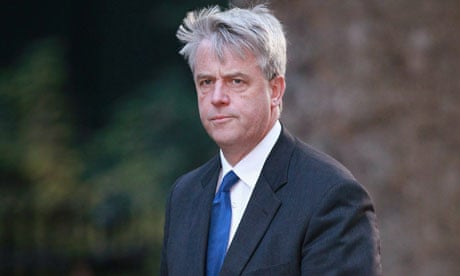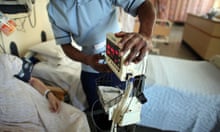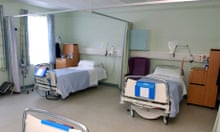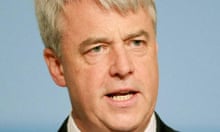The NHS in England is to undergo a radical shakeup with hospitals, private healthcare providers and family doctors competing for patients under plans unveiled yesterday. Some experts warned it could lead to a postcode lottery where people moved house to be close to the best GPs.
The plans include cutting more than 24,000 management staff and allowing NHS hospitals to chase private patients if the money is "demonstrably" ploughed back into the health service. The cap on income from private patients put in place by the previous government will be removed.
The health and social care bill will abolish England's 152 primary care trusts, which plan services and decide how money should be spent. Andrew Lansley, the health secretary, said the cost of implementing the proposals was £1.4bn but insisted they would save the NHS more than £5bn by 2014-15 and £1.7bn every year thereafter.
Under the plans, GPs will be responsible for buying in patient care from 2013, with a new NHS commissioning board overseeing the process. Family doctors will form consortiums that will control 80% of the NHS budget, buying services from providers in the public, private and charity sectors. Lansley claimed his policy was already having an effect with more than 28 million patients covered by "pathfinder" pilot consortiums.
Dr Clare Gerada, the chair of the Royal College of General Practitioners, said the NHS needed reform but she had a number of concerns over Lansley's plans – especially that the "any willing provider" measure allowed taxpayers' cash to be used to pay for private companies to compete to provide services at NHS prices.
"How would you feel if my child went to a private school and you, the taxpayer, paid for it? In the future, patients may have to move to be nearer to a hospital or a GP that provides the services they want. The elderly are vulnerable here as old age complex illnesses represent 15% of patients but 75% of costs. No one has thought through the implications of these plans and there are really big issues," Gerada told the Guardian.
Not all GPs had woken up to the fact that commissioning meant deciding "how many neonatal beds there would be or whether they could afford cancer drugs", Gerada added.
Dr Hamish Meldrum, the chairman of the British Medical Association, said: "Ploughing ahead with these changes as they stand, at such speed, at a time of huge financial pressures, and when NHS staff and experts have so many concerns, is a massive gamble.
"The BMA supports greater involvement of clinicians in planning and shaping NHS services, but the benefits that clinician-led commissioning can bring are threatened by other parts of the bill."
In a speech to the King's Fund tomorrow, the shadow health secretary, John Healey, will attack the ideology driving the reforms, saying it explains why the government is forcing through radical plans despite widespread warnings from health experts, professional bodies and patients' groups. Healey will also say that the plans could prove a "false prospectus" for patients and GPs.
Lansley defended the plans, saying the headquarters of the NHS would now be the "meeting point" between doctors and patients to decide on best care, with GPs taking control of commissioning in 2013. And he attacked trade unions for their criticism, in particular concerns over increasing competition in the health service.
The reforms, which were first set out in a white paper in the summer, include scrapping 10 strategic health authorities and making it easier for hospitals to merge or take over another nearby. Pilot schemes have been set up with "clusters" of trusts established to work with emerging GP consortiums.
Some are concerned that many trust staff are already leaving, leading to fears about patient services in the interim.
The health secretary shied away from capping the amount of money that GPs might earn in leading consortiums. With one in eight family doctors now earning more than £150,000 a year, there are worries that family doctors may end up being paid even more to manage the NHS.
Lansley said: "Whenever we have these [figures] we have to remember that there are a lot of people in the NHS … I am not abolishing the management of the NHS."
There were testy exchanges between Ed Miliband and David Cameron at prime minister's question time. Miliband said the government had "taken the national out of the national health service".





Comments (…)
Sign in or create your Guardian account to join the discussion